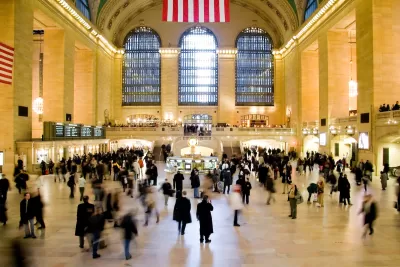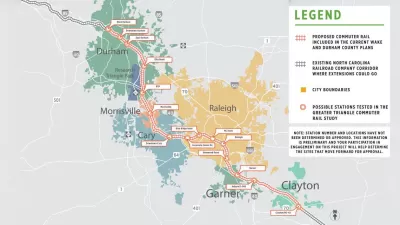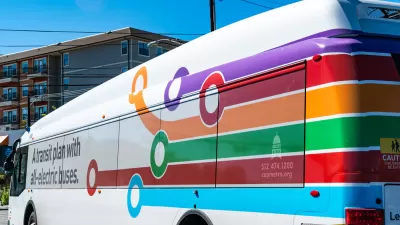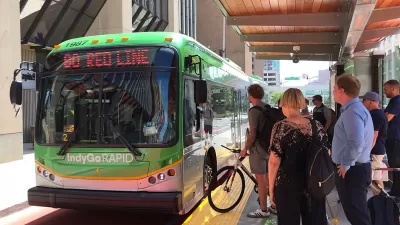Jarrett Walker calls for a more social approach to transit planning.

In an excerpt from his book, Human Transit, Revised Edition: How Clearer Thinking about Public Transit Can Enrich Our Communities and Our Lives, published in Next City, Jarrett Walker argues that American individualism is harming the nation’s public transit systems.
Using a quote from Elon Musk as an example, Walker notes that “With adequate funding and in the context of good city planning, public transit can do all of these things for vast numbers of people, though not for everyone and possibly not for Elon Musk.”
In fact, the way transit forces you to interact in some small way with strangers is one of its strengths. “At its most successful, a transit system’s ridership is as diverse as the city or community it serves. It’s full of all kinds of people making all kinds of trips, all being a bunch of random strangers to each other.”
When transit agencies struggle to create specialized services for various groups of people, the system as a whole can suffer from inefficiency. Walker recommends that, instead of considering user groups separately, “we must think of patterns that many different people will find useful, so that all those people end up on the same vehicle, sharing the expensive time of a single driver.” The diversity of a transit system’s ridership, for Walker, is indicative of its success.
FULL STORY: Individualism Is Making Public Transit Worse

Manufactured Crisis: Losing the Nation’s Largest Source of Unsubsidized Affordable Housing
Manufactured housing communities have long been an affordable housing option for millions of people living in the U.S., but that affordability is disappearing rapidly. How did we get here?

Americans May Be Stuck — But Why?
Americans are moving a lot less than they once did, and that is a problem. While Yoni Applebaum, in his highly-publicized article Stuck, gets the reasons badly wrong, it's still important to ask: why are we moving so much less than before?

Research Shows More Roads = More Driving
A national study shows, once again, that increasing road supply induces additional vehicle travel, particularly over the long run.

Judge Halts Enforcement of Anti-Homeless Laws in Grants Pass
The Oregon city will be barred from enforcing two ordinances that prosecute unhoused residents until it increases capacity and accessibility at designated camping sites.

Advancing Sustainability in Los Angeles County Schools
The Los Angeles County Office of Education’s Green Schools Symposium brings together educators, students, and experts to advance sustainability in schools through innovative design, climate resilience strategies, and collaborative learning.

Using Old Oil and Gas Wells for Green Energy Storage
Penn State researchers have found that repurposing abandoned oil and gas wells for geothermal-assisted compressed-air energy storage can boost efficiency, reduce environmental risks, and support clean energy and job transitions.
Urban Design for Planners 1: Software Tools
This six-course series explores essential urban design concepts using open source software and equips planners with the tools they need to participate fully in the urban design process.
Planning for Universal Design
Learn the tools for implementing Universal Design in planning regulations.
City of Moreno Valley
Institute for Housing and Urban Development Studies (IHS)
City of Grandview
Harvard GSD Executive Education
NYU Wagner Graduate School of Public Service
City of Cambridge, Maryland
Newport County Development Council: Connect Greater Newport





























